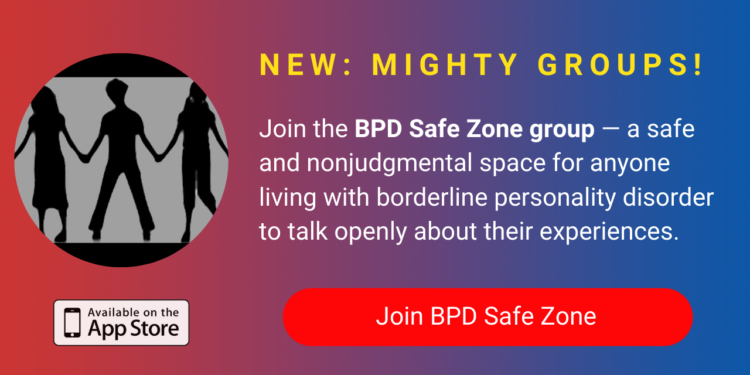Living Courageously in Relationships When You Have Borderline Personality Disorder
“Clingy. Attached. Easily hurt. Fragile. Weak. Stormy.”
These are some of the words I have heard and read, describing people in relationships who live with borderline personality disorder (BPD). By “relationships” I am referring to a variety of relationships with others which includes: friendships, romantic, work/coworker relationships, therapeutic, and even religious such as how we may experience a relationship with God or a higher power in different spiritual paths or traditions.
Often when I felt hurt or abandoned in relationships, I spiraled into a tunnel vision of self-blame, calling myself “too much, weak, clingy.” I labelled myself as a problem to be solved and overcome. These words are hurtful and carry a negative connotation, leading to more hurt and self-criticism of what I see as our “beautiful borderline love.”
Today I reframe the way I label myself in relationships, as well as recognizing the universal need we all have for relationships where we know love, have meaning and experience true belonging. I label myself as one who is: Passionate. Intensely caring. Connected. Sensitive. Compassionate. Faithful. Vulnerable. Courageous. This is my beautiful borderline love.
Dr. Brene Brown, researcher, author and speaker, defines the word “courage” as the original meaning from the Latin word “cor” meaning, heart. Courage originally meant to speak ones mind by telling all one’s heart. Courage is about speaking honestly and openly about who we are and what we are feeling and our experiences — good and bad. This means putting our vulnerability on the line (p. 12 – 13, The Gifts of Imperfection).
I see this original meaning of courage as the way many of us “beautiful borderlines” live out our experiences with relationships. We may be authentic, bold and vulnerable. This can be scary to those around us and come across as “too much,” perhaps we are not “too” anything; perhaps we are courageous. We have “beautiful borderline love.”
Brown’s research demonstrated that a “deep sense of love and belonging is an irreducible need of all women, men, and children. We are all biologically wired to be loved, love, and belong” (p. 25-26). This desire to love and belong is universal; we all desire this, whether we have a label of BPD traits or not.
The way some of us with BPD traits experience relationships and our desire to love, be loved and belong, may seem different. We may experience this as intense and this does not make us wrong or bad. We are worthy of true friendships, and can be immensely faithful and generous. We are able to experience authentic connection, love and joy with others. I see this as our beautiful borderline love.
When I love people, I do so will all my whole heart, soul and mind; and when I experience hurt from relational loss, perceived or real abandonment, it hurts immensely with all my heart, soul and mind. Both are true. Although I have fully engaged in therapies, workbooks and programs that challenged me to check the facts and examine evidence for my intense feelings in attempt to “tone down” my emotions, to match the norm, I have found that real or perceived abandonment often still hurts. Sometimes it leaves what feels like layers of pain, which takes a long time to fade. I wrestle with this pain often. However, what is also often is how courageously and faithfully I love, connect and allow myself to be authentic and vulnerable in relationships.
My own peace and acceptance emerged as I reframed the ways I labelled my personal experience of relationships with BPD traits, as “beautiful borderline love” instead of blaming myself with stigmatized language. I have begun let go of the expectation to experience what others may define as a “normal reaction” to relationships and instead to accept, and even sometimes cherish, the loving and courageous woman I am.
My intensity and courage to give and receive love, which sometimes feels hurt, is not a tragedy.
Although I still experience feelings of sadness with abandonment, perceived or real, I also know the truth that my “beautiful borderline love” is a part of me. I am courageous. And maybe even this is a precious gift.
Getty image by nadia_bormotova


